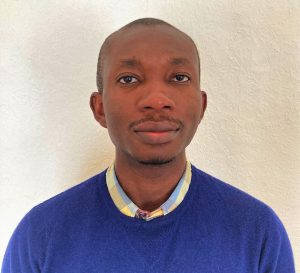Dr Olalekan Lee Aiyegbusi
University of Birmingham
Awarded: £23,709
The challenge
Sarcomas in the abdomen, retroperitoneum (back of the abdomen) and pelvis are generally treated with surgery. Aftercare usually includes a follow-up plan that involves regular clinic visits and scans to check the sarcoma has not grown back or spread to other parts of the body. Many different follow-up plans are being used around the world, but at the moment, none of these are considered better than the others.
To tackle this, the team consulted a panel of people affected by sarcoma to identify what should change. The panel confirmed that follow-up scans and clinic visits can cause significant anxiety, or “scanxiety”, and disruption of daily life for patients. They also highlighted the urgent need to investigate the effect of follow-up and the number of follow-ups on patients’ quality of life, overall survival, and to measure cost-effectiveness of follow-up.
How will this project tackle this challenge?
PhD student Danielle Maes will review follow-up plans across 35 different specialist sarcoma centres, collaborating with a group of experts in retroperitoneal sarcoma (the Trans-Atlantic Retroperitoneal Sarcoma Working Group) to explore how the number of follow-up appointments affect outcomes for patients. Next, patients will be interviewed to get an understanding of what aspects of follow up affect their quality of life most – interview questions will be developed by a panel of people affected by sarcoma. Finally, the team will calculate the costs of follow-up plans and compare this to the benefits.
What this means for people affected by sarcoma
Lots of different follow-up plans are used for sarcoma patients around the world, so insight and understanding is needed to standardise this and ensure that the experience patients receive following surgery is the best it can be. This PhD research will provide new and important information which will help clinicians make meaningful changes to the follow-up plan to potentially improve patients’ quality of life, survival outcomes, quality of care, reduce anxiety and distress, and lower costs for patients and the NHS.
This project is our 2021 Roger Wilson Research Award, awarded to one research each year in recognition of Sarcoma UK’s founder.
The process of regular follow-up scans and clinic visits can cause significant anxiety and disruption of daily life for patients. Understanding the effect of follow-up scans and their frequency on survival outcomes and patients’ quality of life, will help clinicians make meaningful changes to clinical practice to potentially improve patients’ quality of life, survival outcomes, quality of care, reduce anxiety and distress, and lower costs for patients and the NHS. – Dr Aiyegbusi










